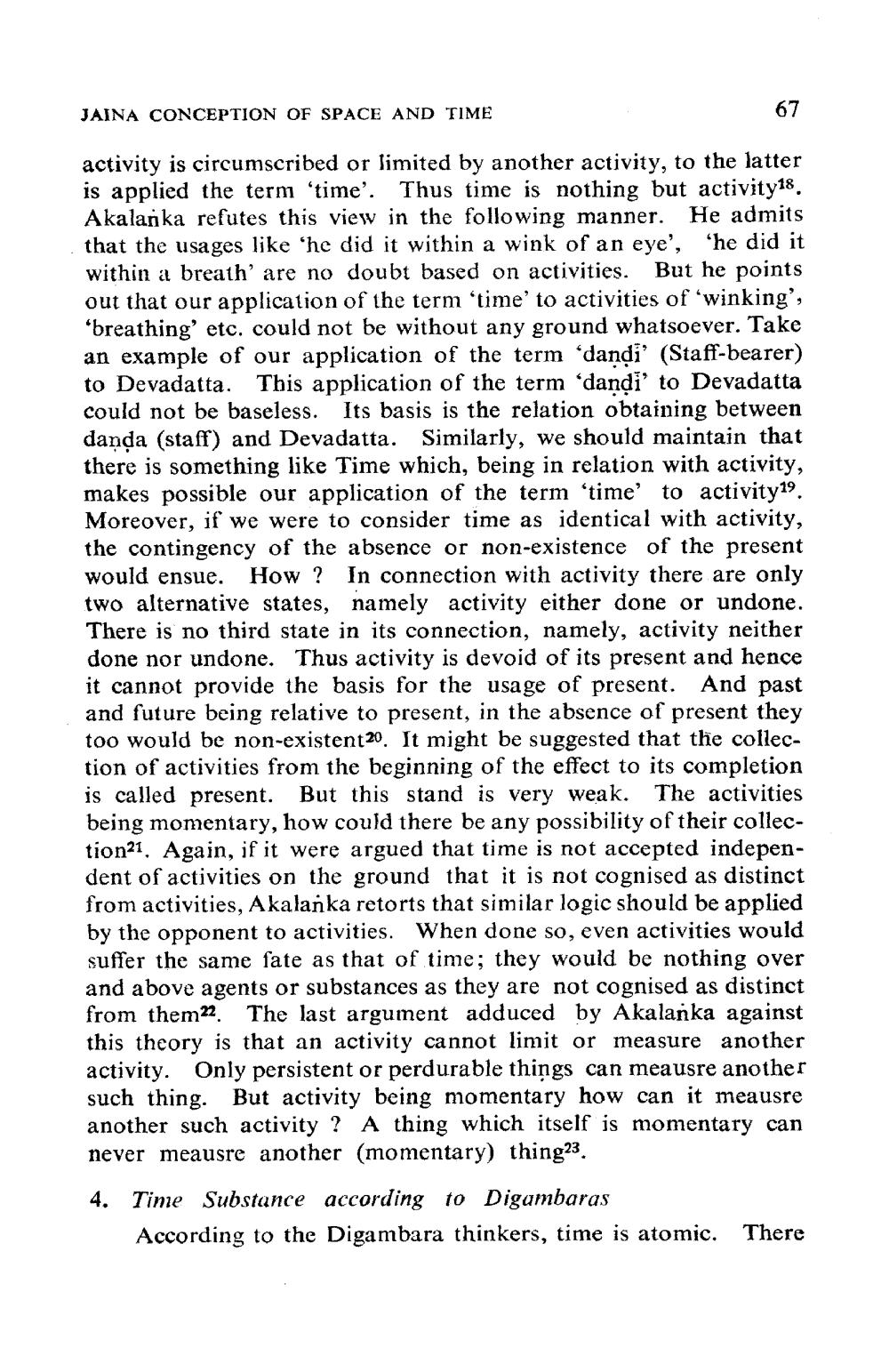________________
JAINA CONCEPTION OF SPACE AND TIME
67
activity is circumscribed or limited by another activity, to the latter is applied the term 'time'. Thus time is nothing but activity18. Akalanka refutes this view in the following manner. He admits that the usages like 'he did it within a wink of an eye', 'he did it within a breath' are no doubt based on activities. But he points out that our application of the term 'time' to activities of 'winking', 'breathing' etc. could not be without any ground whatsoever. Take an example of our application of the term “dandi' (Staff-bearer) to Devadatta. This application of the term 'dandi' to Devadatta
ld not be baseless. Its basis is the relation obtaining between danda (staff) and Devadatta. Similarly, we should maintain that there is something like Time which, being in relation with activity, makes possible our application of the term 'time' to activity 19. Moreover, if we were to consider time as identical with activity, the contingency of the absence or non-existence of the present would ensue. How ? In connection with activity there are only two alternative states, namely activity either done or undone. There is no third state in its connection, namely, activity neither done nor undone. Thus activity is devoid of its present and hence it cannot provide the basis for the usage of present. And past and future being relative to present, in the absence of present they too would be non-existent20. It might be suggested that the collection of activities from the beginning of the effect to its completion is called present. But this stand is very weak. The activities being momentary, how could there be any possibility of their collection21. Again, if it were argued that time is not accepted independent of activities on the ground that it is not cognised as distinct from activities, Akalanka retorts that similar logic should be applied by the opponent to activities. When done so, even activities would suffer the same fate as that of time; they would be nothing over and above agents or substances as they are not cognised as distinct from them22. The last argument adduced by Akalanka against this theory is that an activity cannot limit or measure another activity. Only persistent or perdurable things can meausre another such thing. But activity being momentary how can it meausre another such activity ? A thing which itself is momentary can never meausre another (momentary) thing23. 4. Time Substance according to Digambaras
According to the Digambara thinkers, time is atomic. There




